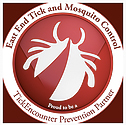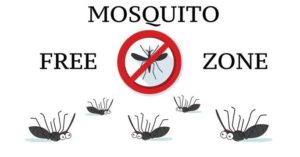
The 4th of July is a holiday when family, friends, and loved ones spend time together in the warm summer sun. While you are having a lively conversation, grilling up some delicious food, and hanging out poolside, the last thing you should be worried about is mosquitoes. These pesky insects can turn your outdoor gathering into a disaster.
[Continue Reading]
Long Island Ticks and Their Diseases
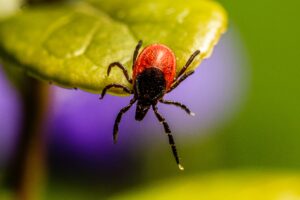 Spring has arrived and after being stuck inside all winter, we cannot wait to get back outside! However, it is important to remember that ticks are active, and the time to start preparing for Lyme Awareness Month is now.
Spring has arrived and after being stuck inside all winter, we cannot wait to get back outside! However, it is important to remember that ticks are active, and the time to start preparing for Lyme Awareness Month is now.
[Continue Reading]
The Time to Start Preparing for Winter is Now
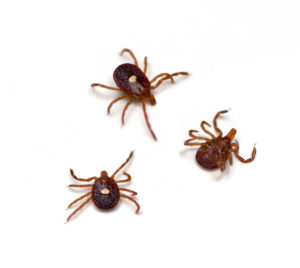 Most people believe that colder temperatures kill ticks but we’re here to let you know that myth is FALSE. During the fall season (October and November), ticks are active and looking to feed as they know winter is on the horizon and they’ll need to survive until spring.
Most people believe that colder temperatures kill ticks but we’re here to let you know that myth is FALSE. During the fall season (October and November), ticks are active and looking to feed as they know winter is on the horizon and they’ll need to survive until spring.
[Continue Reading]
8 Tips for Preventing Mosquitos This Summer

Tips for Staying Safe This Summer
The summer of COVID-19 will bring smaller than usual gatherings with family and friends including BBQs and outdoor celebrations. Unfortunately, the summer of COVID-19 will also bring irritating mosquitos, bugs, and ticks that will bug you and your guests.
[Continue Reading]
Protecting Your Pets from Ticks
 While it’s always important to protect yourself from ticks, we can’t forget about our furry friends! Ticks are VERY small, therefore they can be easy to miss and are sometimes latched on for days before we come across them. Both cats and dogs can be infected with Lyme disease and cats are especially vulnerable to tularemia, haemo-bartonellosis, and babesiosis. Dogs, similar to people, can contract Rocky Mountain spotted fever, hepatozoonosis, which is contracted by eating an infected tick.
While it’s always important to protect yourself from ticks, we can’t forget about our furry friends! Ticks are VERY small, therefore they can be easy to miss and are sometimes latched on for days before we come across them. Both cats and dogs can be infected with Lyme disease and cats are especially vulnerable to tularemia, haemo-bartonellosis, and babesiosis. Dogs, similar to people, can contract Rocky Mountain spotted fever, hepatozoonosis, which is contracted by eating an infected tick.
[Continue Reading]
In the Fall, Ticks Still Crawl!
 Warmer days are behind us, but ticks remain active through the end of November and fall is adult tick season! In the fall, ticks are actively looking to feed before the cooler winter months arrive to help them survive into the spring season. According to the Tick Encounter Resource Center, the adult stage deer tick actually begins its feeding activity around about the time of the first frost (early October) and it will latch onto any larger host on days that the temperature is near or above freezing. “It’s crucial to continue taking preventative measures and checking for ticks because they are still active and in search of a blood meal into mid-November,” said Kelly.
Warmer days are behind us, but ticks remain active through the end of November and fall is adult tick season! In the fall, ticks are actively looking to feed before the cooler winter months arrive to help them survive into the spring season. According to the Tick Encounter Resource Center, the adult stage deer tick actually begins its feeding activity around about the time of the first frost (early October) and it will latch onto any larger host on days that the temperature is near or above freezing. “It’s crucial to continue taking preventative measures and checking for ticks because they are still active and in search of a blood meal into mid-November,” said Kelly.
[Continue Reading]
Get Ready for Lyme Disease Prevention Month
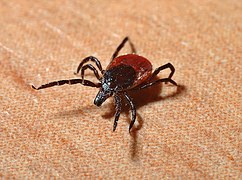 May brings warm weather and sunshine, but with warm weather comes the return of ticks! The month of May is dedicated to spreading awareness of the prevalent, yet preventable illness, Lyme disease. According to the Center for Disease Control and Prevention (CDC), approximately 30,000 cases of Lyme disease are reported in the United States, but an estimated 300,000 people are diagnosed annually. Studies show that 20-50% of the ticks on the East End of Long Island are infected with Lyme disease and 70% of all people who are diagnosed are bitten in their own yard.
May brings warm weather and sunshine, but with warm weather comes the return of ticks! The month of May is dedicated to spreading awareness of the prevalent, yet preventable illness, Lyme disease. According to the Center for Disease Control and Prevention (CDC), approximately 30,000 cases of Lyme disease are reported in the United States, but an estimated 300,000 people are diagnosed annually. Studies show that 20-50% of the ticks on the East End of Long Island are infected with Lyme disease and 70% of all people who are diagnosed are bitten in their own yard.
[Continue Reading]
10 Tips to Avoid Tick-Related Illness
Memorial Day Weekend Tick Awareness
Memorial Day Week is upon us and it’s finally feeling a little bit like sum-… we won’t say it out loud and jinx it. We’re just as happy as you are to feel the sunshine and get ready for a long holiday weekend. With that though, comes backyard BBQs and outdoor adventures, so it’s only right that we share this as we head outside and Lyme Disease Awareness Month comes to a close.
[Continue Reading]
How to Deal With Ticks in Autumn
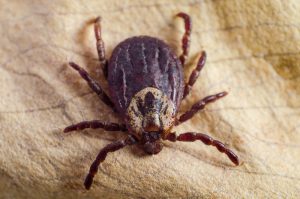
Tick Control in the Autumn
Autumn in the Northeast can be an incredible time of year. The leaves changing make any wooded area incredible to look at, football is back, pumpkin spice everything, Halloween, and cooler weather. This cooler weather provides for another benefit, the disappearance of many annoying bugs and insects from our lives. Unfortunately, however, ticks are not one of those many bugs. As you will learn, ticks will remain active well into the autumn. In this article is some information on how ticks survive in the autumn, and how to do tick control in the autumn.
[Continue Reading]
Animals That Help With Tick Control

Animals That Eat Ticks
When it comes to ticks, it can seem like there is almost no help besides your friends over at East End Tick and Mosquito Control®. Deer, mice, squirrels, and even dogs, man’s best friend, can aid in the spreading of ticks. However, there are a few animals that can live on Long Island that actually eat ticks. With the spread of Lyme Disease, these animals can be extremely beneficial to the residents of Long Island.
[Continue Reading]


